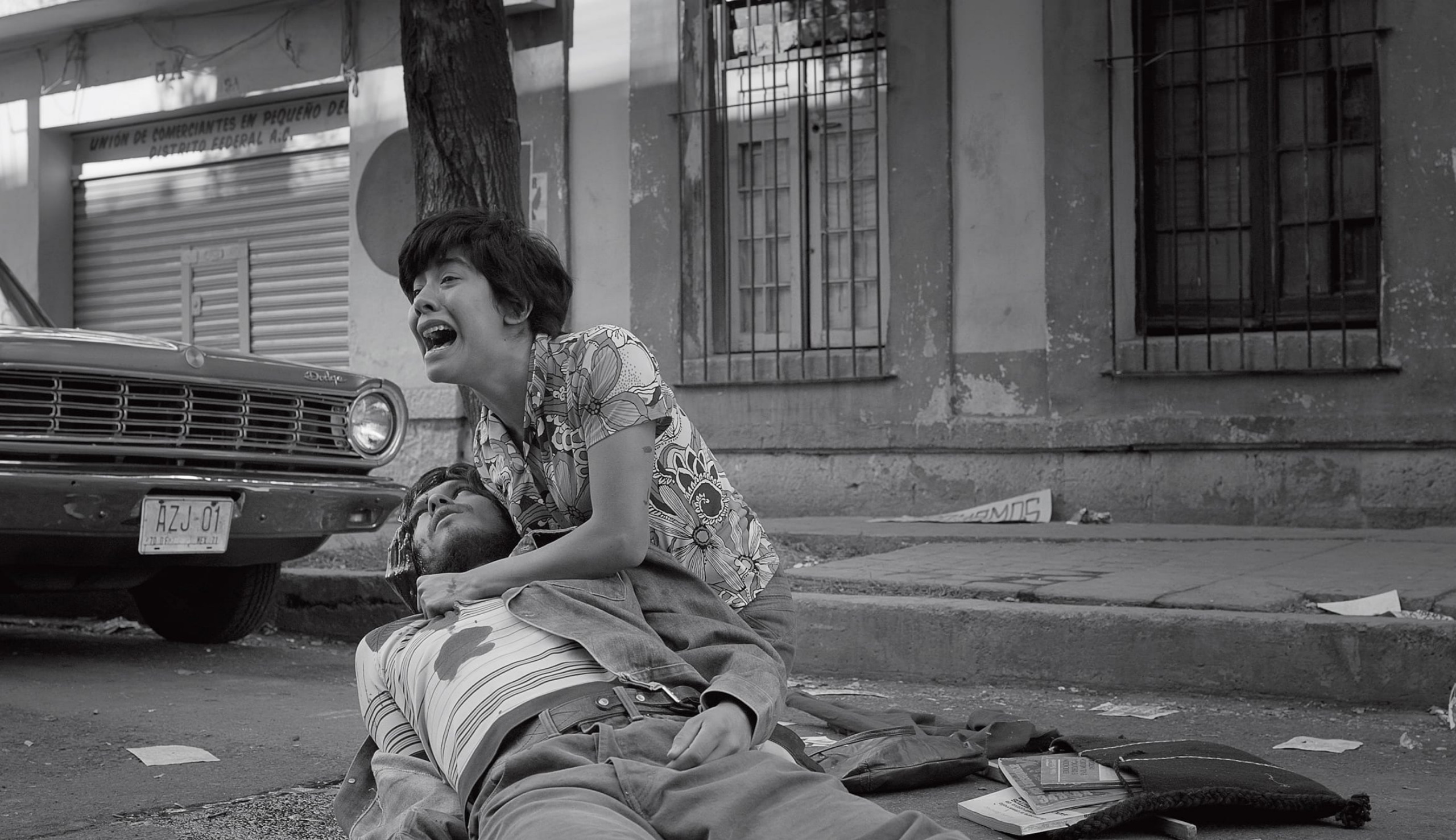RELATED ARTICLE
Nothing at Stake
By Kogonada
The Layers of Roma
The Criterion Collection

If you were born in Mexico City in the second half of the twentieth century, you grew up feeling that everything could come tumbling down in a matter of minutes. You grew up amid the reverberation of past earthquakes—all their emotional aftershocks—and learned to live with the presentiment of future ones. You knew that right there, where there was now a gap, was once a home, a hospital, a church. You learned that the stones of Mexican ruins were used to build the first colonial buildings, and the ruins of those, to build the neocolonial ones: the practice of repurposing ruins, always a rule and not an exception. You grew up sensing the push and pull of the lacustrine substrates under the pavement (the city was, once upon a precolonial time, a series of interconnected lakes), and so you walked along sidewalks where some slabs had swollen and curved like solidified waves and some others had cracked and burst into a beautiful pile of rubble, roots, and mud. Roma dismantles that fragile, ever-shifting, almost liquid place—and puts it back together slowly, tenderly, with a nostalgia that is never sentimental.
You probably also grew into the feeling that maybe it should, indeed, all tumble down. You grew up knowing that, despite the tight grip of the seventy-plus-year rule of the PRI (Institutional Revolutionary Party) and its production line of authoritarian statesmen and petty politicos, there was a fundamental unsustainability to it all: the student massacres, the legalized crime of seizing native land, the electoral frauds, the programs, and then the programs to make up for the programs that fucked up. All the pyrotechnics that foregrounded mediocrity and corruption. You grew up in the hypocrisy of the middle- and upper-class simulacrum of modernity, while a majority starved and was systematically relegated to the margins. You belonged to a space where women, and especially indigenous and mestiza women, provided the glue that kept the world together yet were always kept invisible and inaudible. Roma captures that unbearable, uninhabitable space—and portrays it ruthlessly, honestly, with a critical eye that is never self-indulgent.“Roma is a visual document of the absurd everydayness and everythingness of life in a moment in which the world was shifting but none of us had yet noticed.”

“Alfonso Cuarón, you got eyes. But also: You got ears. And got a soul as old as los cerros.”
